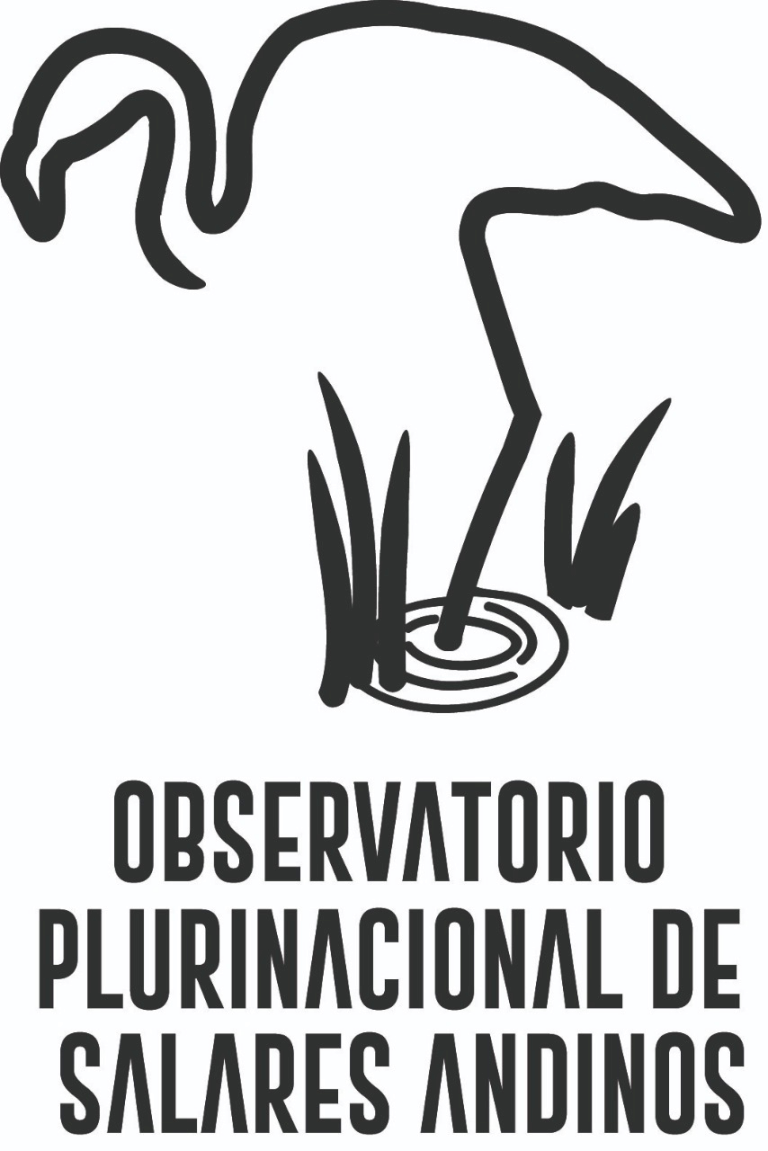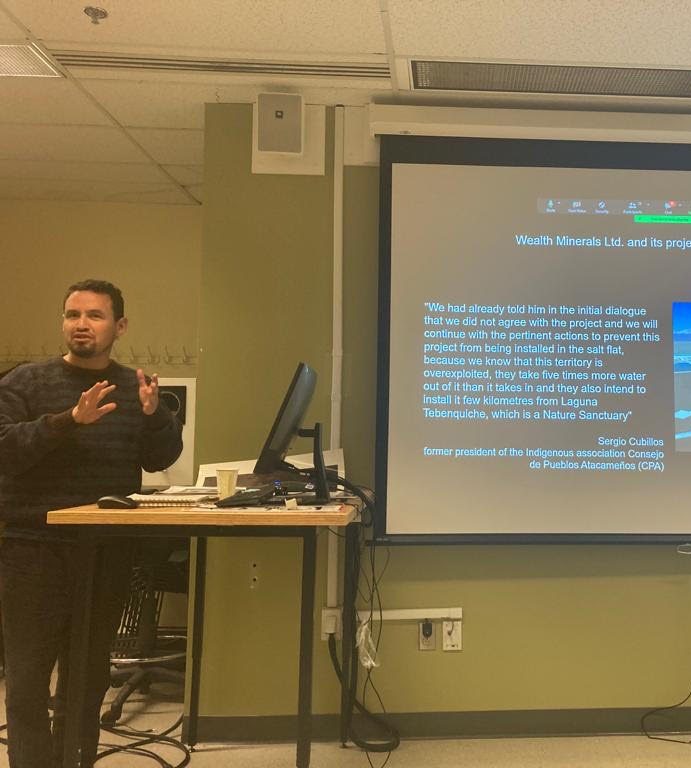The co-coordinator of the Plurinational Observatory of Andean Salt Flats (OPSAL) in Chile, Ramón Balcázar, presented the report «Canadian lithium investments in Chile: extractivism and conflict» at a forum held at the Université du Québec in Montreal, Canada.
The forum, attended by students and interested members of the public from different parts of the world, was an opportunity to present the report which describes key Canadian mining interests in Chile — particularly investments in metals like copper and lithium that enable the so-called green transition for the technology and electromobility industries. The report provides a broad overview of Canadian involvement in Chilean mining, describes the projects being advanced by Canadian lithium companies in Chile, and details the effects that mining has on the salt flats and wetlands.
During the forum, the president of the Tantí Foundation also presented on some of the conflicts that mining projects have caused in the Salar de Coipasa, and shared information about Lithium Chile’s lawsuit against the Aymara communities in the Tarapacá region. «We see the effects of this unregulated expansion of lithium extraction right from the earliest stages of the projects. At the same time, our own experience shows no substantial differences between neoliberal and more progressive governments when it comes to selling off Chilean salt flats to foreign investors and acting to facilitate further resource extraction during international conferences such as the PDAC convention in Toronto,” says Ramón Balcázar.
The presentation took place only days before the Chilean government announced the forthcoming National Lithium Strategy, which involves the creation of a national lithium company. For the co-coordinator of OPSAL in Chile, this public policy «could represent a latent risk that the granting of mining concessions will be accelerated without adequate and sufficient knowledge of the impacts, and could risk causing new socio-environmental conflicts in territories that are already suffering the impacts of both metal mining and climate change.”
The process of creating a national strategy for lithium extraction has been characterized by a lack of participation of civil society, and has focused on the economic and financial aspects with only light social touches, in particular the participation of Indigenous communities in receiving revenues from mining.
Assessment of the report from Canadian organizations
The forum, held on Thursday, March 16, was coordinated by Isabel Orellana, director of the Centre for Research in Education and Training in Environment and Eco-citizenship, Université du Québec à Montréal (UQAM). She says that from her research in the area, «We know that lithium mining projects in Chile are expanding at an exponential rate, especially following the signing of the Paris Agreement – an agreement which warned about climate change issues but also opened the door to an energy transition and a market to electrify transportation, and with it, expand lithium extraction.”
Devin Holterman, a member of the Canadian organization Beyond Extraction, also participated in the presentation of the report. He highlighted that countries like Canada should not be fighting climate change and reducing their greenhouse gas emissions while simultaneously sacrificing territories and communities in Chile and around the world. «This is not what a just, equitable and humane ecological transition should look like,» said Holterman, who also co-authored the report.
For Holterman, «As Canadians, we have a huge responsibility to challenge the global impacts of our consumption and extraction of resources, including metals used in technologies such as electric cars. To win the fight against climate change, countries like Canada must not replicate the colonial and extractive systems that have led us to this global climate emergency.”
Meanwhile, for Viviana Herrera, member of MiningWatch Canada and another co-author of the report, Canada uses colonialist practices to capitalize on the climate crisis and expand mineral extraction on a global scale, specifically in Latin American countries such as Chile and Brazil. «Companies count on the economic and political support of the Canadian government through its embassies to facilitate and promote Canadian mining in other countries such as Chile.» During her presentation, she described the consequences Indigenous peoples in Canada face as a result of the country’s own mining projects, which are supported by government policies.
Finally, forum moderator Gabriel Poisson, member of the Canadian organization ResistAction, stressed the importance of scrutinizing what lies behind the discourses of progressive governments: «Canada has a reputation for being a good global and corporate citizen, but this narrative hides the country’s export of harmful methods of resource extraction, and the diplomacy that supports it around the world, not to mention the impact of resource extraction within Canada.”
The report presented in Montreal is available on the OPSAL website. The report was also co-authored by OPSAL member Cristián Flores Fernández.

